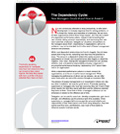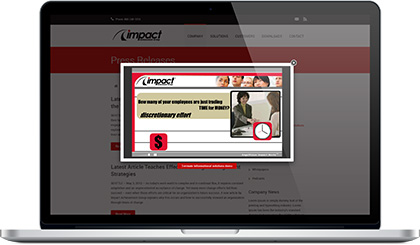 SEATTLE – March 28, 2012 – A dependent performance culture reduces productivity, stifles talent development, and thwarts employee morale and motivation. A new article from Impact Achievement Group, “The Dependency Cycle: How Managers Create It and How to Avoid It,” addresses why this dependence occurs and how to change it.
SEATTLE – March 28, 2012 – A dependent performance culture reduces productivity, stifles talent development, and thwarts employee morale and motivation. A new article from Impact Achievement Group, “The Dependency Cycle: How Managers Create It and How to Avoid It,” addresses why this dependence occurs and how to change it.
"Dependent relationships keep people from achieving their potential. The dependent person has low expectations of himself, often the result of a supervisor’s inability to foster self initiative, and his performance then begins to reflect this lack of confidence. Appropriate management behaviors can develop initiative, trust, and personal responsibility and play a large part in ensuring that performance-hindering “dependency DNA” doesn’t take hold in an organization.
"Organizations don’t meet their goals when employees are dependent on their managers,” said Lee Klepinger, president and chief executive officer of Impact Achievement Group. “Managers have to establish their leadership role—not as the person who does everything for everyone, but as the person who masters the skills to create a work environment where confidence, accountability and initiative are the norm."
Managers and supervisors will learn how they contribute to a cycle of dependency in their organizations and how to re-educate themselves and their employees to operate in a performance culture. Readers will learn:
- how delegation develops personal initiative and responsibility;
- the two resources supervisors and managers have to invest in their direct reports, and how they get squandered;
- how to prevent upward delegation and the “leaping monkey” scenario; and
- why it’s critical to guard leveraged time.
"The Dependency Cycle: How Managers Create It and How to Avoid It" is available now for complimentary download.


